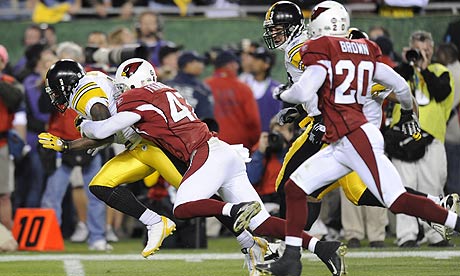
Last week I reviewed the main differences between the Cervarix and the Gardasil vaccines. As well as protecting against cancer-causing HPV strains 16 and 18, Gardasil prevents strains 6 and 11, which cause genital warts. For public health authorities, choosing which vaccine to adopt is a complex matter, with scientific, economic and cultural dimensions.
Britain's NHS vaccine programme uses Cervarix, but which vaccine would doctors choose for their own daughters?
GP and writer Dr Phil Hammond asked various colleagues this question. Peter Greenhouse, for example, a sexual health consultant in Bristol, told him: "You'd be mad not to protect your daughter against genital warts if you can afford to." In other words, he favours Gardasil over Cervarix.
My mother, who is a GP, decided to vaccinate me with Gardasil when I was 22. "I've come across many cases of cervical cancer in young women," she points out. Portugal adopted Cervarix, but "even before the creation of a HPV vaccination programme Gardasil was available for many months in pharmacies. Girls under 25 could take it."
Earlier this year a study by the British Association for Sexual Health and HIV revealed that 93% of sexual health clinicians were advising their patients to have Gardasil, and 61% had paid for their daughters to be vaccinated with Gardasil.
But what about their sons? HPV causes cancers in men, too, and in March a study funded by the US National Cancer Institute found that up to half of adult males in Mexico, Brazil and the US could be infected with HPV.
More than 5,000 new cases of anal cancer were reported in the US in 2010, 39% of which were in men. Researchers have suggested that HPV is a necessary cause of anal cancer.
But HPV infection is not limited to gay men. In 2007, the Journal of Infectious Diseases reported that 25% of men who said they had never had sex with other men were infected with HPV.
A connection between the human papillomavirus and another cancer – oral cancer – was first suggested a decade ago leading to calls to include men in HPV vaccination programmes.
So shouldn't men as well as women be vaccinated against HPV? When I asked Professor Jack Cuzick, clinical adviser for Cancer Research UK, he said vaccinating women was the priority "because in fact women are the ones that get most of the diseases that are related to HPV".
In addition to genital warts, HPV-related diseases include penile, anal, head, neck, vulvar, tonsil and throat cancers. Although these diseases are rare, they demonstrate how widespread in the body an HPV infection can be.
Vaccinating homosexual men is crucial, according to Dr Anne Szarewski of Cancer Research UK. "If we don't vaccinate men then of course the men who have sex with men get nothing because they cannot benefit from the immunity from women," she said.
She also suggested that girls should be vaccinated with Cervarix but men with Gardasil. This way we could focus on preventing cervical cancer in women and other HPV-related diseases in men.
But does the vaccine actually work in men? Cervarix has been shown to be safe in boys between 10 and 18 years old, and produced antibodies to HPV. Meanwhile, a study in the US suggested Gardasil was cost-effective in preventing genital warts and anal cancer among gay men.
In the UK, however, NHS Choice says an HPV vaccination programme for boys would not be cost-effective because most cancers caused by HPV occur in women, "who therefore stand to benefit more from vaccination on an individual level."
In most countries the vaccine is available for men who can afford to pay for it, but as far as I know it isn't included in any vaccination programme. We'll have to await further scientific evidence.
In the meantime it is worth highlighting the links between HPV infection and sexual behaviour. The more partners one has, the higher the probability of being exposed to someone with an infection. Scientists suspect that HPV infection has increased as a result of increased promiscuity since the sexual revolution of the 1960s.
If most of HPV infections occur at young ages, improving sexual education and awareness of sexually transmitted diseases would certainly help. One worry is that oral sex might be one way to pass on the virus. Hazel Nunn, senior health information manager at Cancer Research UK, says "oral cancer linked to HPV is a fascinating field of research" – but she emphasises that there are still many unanswered questions.
Wearing a condom for penetrative sex reduces the risk of HPV transmission, as well as hepatitis B and C, which can cause liver cancer. So could sex education, rather than vaccination, be the most cost-effective way to prevent HPV-linked disease in men?
The jury, it seems, is still out. At the foot of this page is a discussion I had with three experts via Twitter about vaccinating men against HPV.
My research into HPV vaccination continues, as does my need for your thoughts.
Débora Miranda can be contacted on Twitter @debmir and via email on cancerscreeningproject@gmail.com
.

